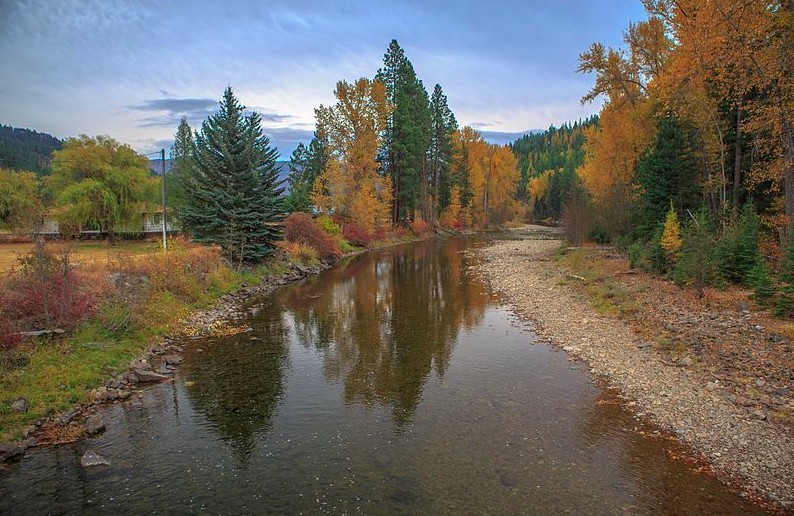Assessment of Present and Future Water Security of the Kettle River at Grand Forks in Southeastern B.C.
Julian Yeo, MLWS 2020
The simultaneous occurrence of warm spring temperatures and a large snow water equivalent at high elevations in the Kettle River Basin caused a rapid snowmelt event, creating the Kettle River flood at Grand Forks in May 2018. This flood represents an acute isolated event. No long-term trends were observed in the Kettle River’s hydrology and climate data. Yet, cumulative effects from decades-long forest land-use changes have made the basin more vulnerable to floods. Hence, the 2018 flood resulted from the pairing of climate effects and forest land-use changes in the headwaters.
The Kettle River is largely driven by snowmelt, given that the majority of this watershed lies above 1,200 meters. Forest removal and road networks have increased open surface area for snow accumulation. Melted snow is likely to run off these surfaces, given changes in soil infiltration that resulted from conventional and pine infested tree harvesting, combined with wildfires. This melt greatly amplifies the Kettle River’s streamflow. Climate change is impacting the watershed. Melting events will occur earlier in the spring. Wildfires, the mountain pine beetle, and more dramatic infestations of western spruce budworm are likely to continue with climate change–dead stands potentially increasing the severity of fires.
Continued forest removal will cause a greater impermeable surface area for snow accumulation. High summer temperatures will produce more droughts. Grand Forks’ water security for surface water extraction is likely to be precarious in the summertime. Therefore, forest rehabilitation, spring flood protection, and summer water conservation will become crucial for the health of the Kettle River watershed and its communities in the 21st century.
